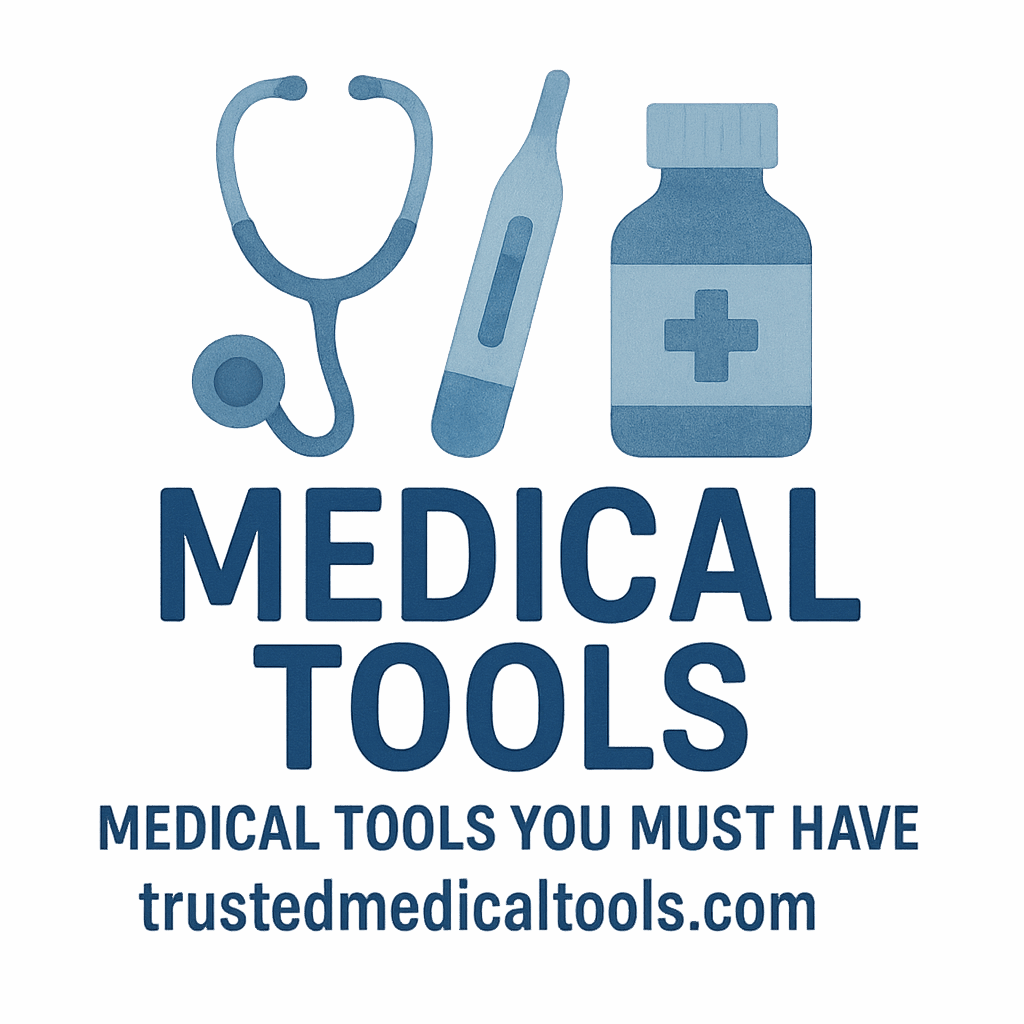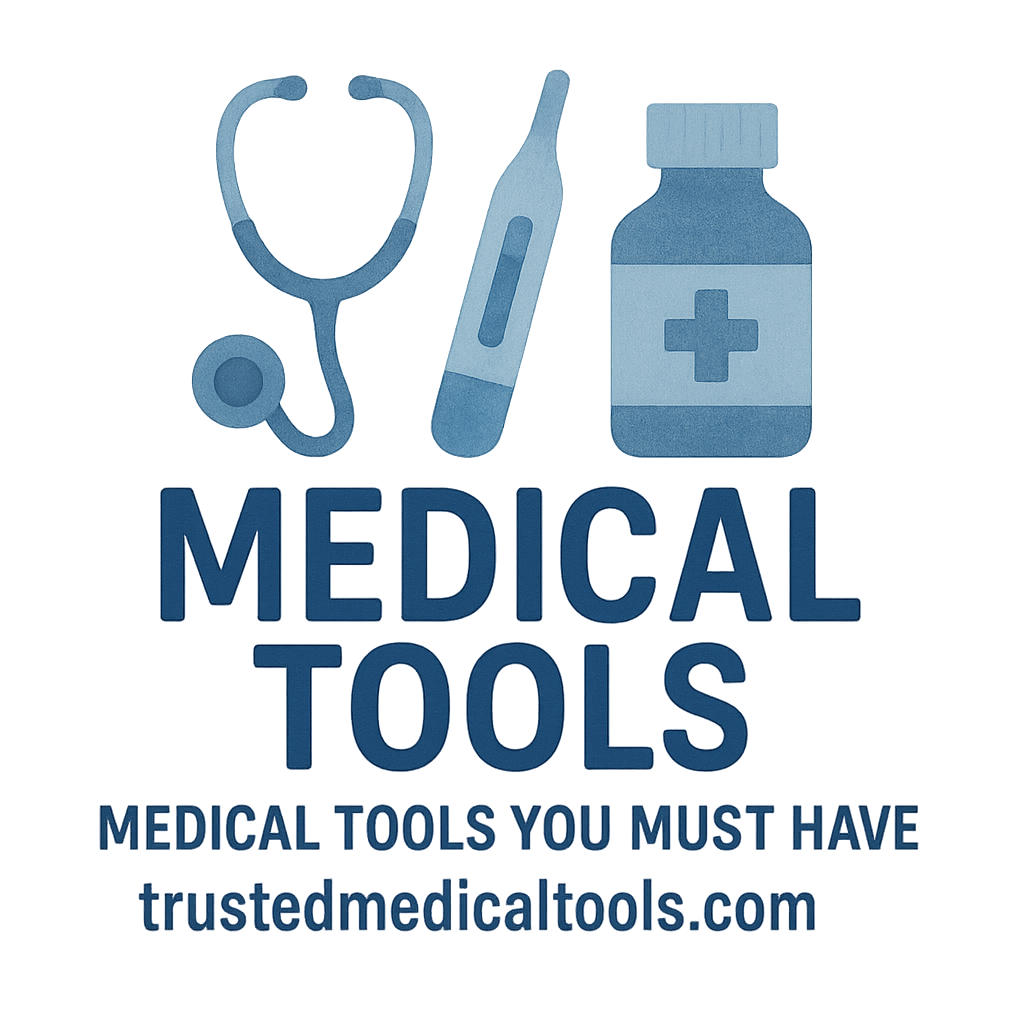Introduction
When it comes to maintaining your health or caring for loved ones, having the right medical tools can make all the difference. Whether you’re managing a chronic condition, performing first aid, or just keeping track of your overall well-being, medical tools offer a great deal of assistance. But how do you ensure you’re buying the right ones? With so many options available on the market, it can be overwhelming to choose.
In this guide, we will walk you through the 10 essential questions to ask before buying medical tools, helping you make informed decisions. By the end of this article, you’ll have a clear understanding of how to purchase tools that are safe, effective, and tailored to your needs.
Why Buying the Right Medical Tools is Crucial
Medical tools are not one-size-fits-all. They come in various forms, from simple thermometers to complex monitoring devices. The right tools will help you keep accurate health records, perform necessary interventions, and even save lives in emergencies. But purchasing the wrong equipment can lead to incorrect results, potential harm, or unnecessary expenses.
How the Right Tools Can Impact Health Outcomes
Choosing the correct medical tool for the job can significantly improve health outcomes. For example, a blood pressure monitor that gives accurate readings can help you manage hypertension effectively. Conversely, an inaccurate tool could mislead you, leading to incorrect treatment decisions. This makes it essential to buy doctor-approved tools from trusted sources like Trusted Medical Tools.
What Are Medical Tools?
Definition and Types of Medical Tools
Medical tools are devices and instruments used in healthcare to diagnose, monitor, or treat conditions. They can range from basic tools like thermometers and bandages to more sophisticated equipment like blood glucose monitors or ECG machines. Understanding the type of tool you need is the first step in ensuring you’re buying the right one.
The Role of Medical Tools in Home and Professional Settings
While medical tools are critical in professional healthcare environments, many are now designed for home use as well. Home healthcare tools allow individuals to monitor their health without needing a doctor’s visit every time, which is especially helpful for ongoing conditions like diabetes or high blood pressure.
Why Should You Invest in Quality Medical Tools?
Benefits of Using Reliable Medical Tools
Investing in quality medical tools is not just about convenience – it’s about safety. High-quality tools ensure accuracy, ease of use, and longevity. When dealing with your health, precision is key. For instance, reliable monitoring devices can give you accurate readings, allowing for timely medical intervention.
Risks of Using Low-Quality Medical Tools
On the other hand, cheap or substandard tools can lead to inaccurate readings, malfunctioning, and even injury. A DIY health check using a poor-quality thermometer or pulse oximeter may give you false results, leading to unnecessary worry or missed medical conditions.
10 Essential Questions to Ask Before Buying Medical Tools
1. What Specific Medical Need Are You Addressing?
Before you start shopping, ask yourself what health need the tool will serve. Are you buying something for family care, first-aid purposes, or perhaps a tool for monitoring chronic conditions? Identifying the purpose of the tool will help narrow down the options.
2. Are the Tools Doctor-Approved and Safe to Use?
The safety of your medical tools should be a top priority. Always choose products that are doctor-approved and have been tested for safety. Regulatory certifications, such as FDA approval, can give you peace of mind that the tool is safe and reliable.
3. Is the Tool Easy to Use?
No matter how high-tech or advanced a medical tool is, if it’s too complicated to use, it’s essentially useless. Consider how easy it will be for you or a loved one to operate. Are the instructions clear? Can the tool be easily set up and used in an emergency situation?

4. What Are the Tool’s Durability and Lifespan?
Think about how long you need the tool to last. Some tools, like a first-aid box, may be used frequently, while others might only be needed occasionally. Understanding the durability of the tool will help you decide if it’s worth the investment in the long run.
5. Does the Tool Meet Regulatory Standards?
Check whether the tool adheres to recognized health and safety standards. For example, tools like home health-care monitoring devices should be certified by reputable organizations. Ensuring the product meets these standards can prevent you from purchasing counterfeit or substandard equipment.
6. Is There Any Warranty or Guarantee?
Many medical tools come with a warranty or satisfaction guarantee. This can give you confidence in your purchase and allow for easy returns or repairs if the tool doesn’t function as expected. Always ask about the warranty details before making a decision.
7. How Accurate and Reliable Are the Readings?
Accuracy is paramount when it comes to health tools. Whether you’re measuring blood pressure, temperature, or other vitals, inaccurate readings can lead to improper treatment. Choose tools known for high accuracy, and check for reviews or clinical validation.
8. Is the Tool Compatible with Your Home Setup?
Consider whether the tool will fit seamlessly into your daily routine. For instance, a health monitoring device should be easy to store and use in your home. Also, check if it works with other devices or platforms you already use.
9. How Easy Is It to Clean and Maintain?
Hygiene is important, especially for medical tools. A tool that’s difficult to clean or maintain can become a breeding ground for bacteria. Choose tools that are easy to clean, and ensure they’re durable enough to withstand regular maintenance.
10. What Is the Price and Is It Worth the Investment?
Price matters, but it shouldn’t be the only factor. While you don’t need to buy the most expensive tool on the market, remember that quality often comes at a cost. Consider the tool’s durability, functionality, and how long it will serve you when evaluating its price.
Where Can You Buy Quality Medical Tools?
Recommended Sources for Trusted Medical Tools
Always buy medical tools from trusted sources to ensure quality and authenticity. Websites like Trusted Medical Tools offer a wide selection of doctor-approved, high-quality tools for home health care. Look for online stores with good reviews, a solid return policy, and customer support.
Online vs. In-Store Purchasing
Both online and in-store shopping have their pros and cons. Shopping online gives you access to a wider range of products and often better deals, but you can’t physically test the tool. If you prefer to see the tool in person before buying, in-store shopping may be a better option.
Conclusion
Buying the right medical tools requires careful consideration. By asking the essential questions outlined above, you can make an informed decision and choose tools that are safe, effective, and long-lasting. Always prioritize quality, accuracy, and ease of use to ensure that your tools meet your health needs.
FAQs
1. How Can I Ensure That My Medical Tools Are Safe to Use?
Check for regulatory approvals like FDA certifications and read reviews from reputable sources.
2. Are There Any Tools That Are Specifically Required by Law for Home Healthcare?
Certain tools, like blood pressure monitors, may be recommended for monitoring chronic conditions. Always check local laws.
3. How Often Should I Replace My Medical Tools?
The lifespan depends on the type of tool. Tools like thermometers may last several years, while monitoring devices may need replacing every few years.
4. Can I Buy Medical Tools Without a Prescription?
Yes, many medical tools, especially home-care products, can be purchased without a prescription.
5. How Do I Know If a Medical Tool Is Doctor-Approved?
Look for product certifications or consult with a healthcare professional to verify whether a tool is doctor-approved.
6. Can I Return a Medical Tool If It Doesn’t Work As Expected?
Most reputable sellers offer return or exchange policies. Always check the return policy before purchasing.
7. What Are the Most Common Medical Tools Used in Home Health Care?
Some common tools include blood pressure monitors, thermometers, pulse oximeters, and first-aid kits.Alat


